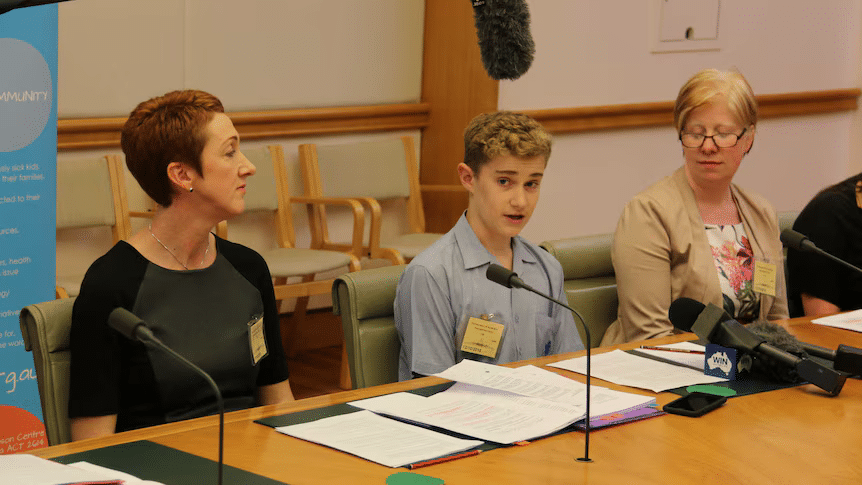MissingSchool was featured in an article from ABC. To view the original article click here.

Sick children who miss extended periods of school being left behind, report finds
Children forced to miss extended periods of school due to illness or injury are not receiving sufficient support to ensure they develop socially and academically, a new report has found.
The report, commissioned by advocacy group Missing School, showed that children who missed extended periods of school suffered academically.
The report estimated that as many as 60,000 school students in Australia experienced significant absence from school but there was no uniform mechanism for helping those children among the nation’s schools.
Missing School co-founders Megan Gilmour, Gina Meyers and Cathy Nell called for greater awareness and a stronger approach to helping children who miss school due to illness.
“We need to give these kids what works, in a consistent framework,” Ms Gilmour said at Parliament House in Canberra today.
“This is not about favours or a nice thing to do or charity, we want to see the state and territory education departments and schools take up their responsibility within a national agenda.”
The report noted that students suffered academically but could also become isolated from peer groups and have their social development impeded.
Teachers unsure how to manage students who miss class
Jo Chivers’ 12-year-old son Patrick Vann suffers severe eczema and can miss up to a term of school every year.
“The thing that we have really noticed in the impact on his academic results, often teachers don’t know how to grade him,” Ms Chivers said.
Canberra student Patrick Vann and his mother Jo Chivers at Parliament House to advocate for children who miss school because of illness, 12 October 2015(ABC News: Jordan Hayne)
“The stock-standard comment that we always see on his school reports is ‘he would have got a better grade if he had actually been present in school a lot longer’.”
While Patrick was provided with tutoring and was able to attend classes at Canberra Hospital, Ms Chivers said there was no uniformity between that and his school work.
“We’ve got some teachers who really understand and do their best to ensure that he catches up, but there are a lot of teachers in the education system who just don’t get the impact that it has on children like Patrick, not through any fault of their own,” she said.
Ms Gilmour’s son Darcy, who underwent a bone-marrow transplant three years ago, said children who were going in and out of hospital did not deserve to see their education suffer.
“These kids, like I once was, are in hospital or at home doing everything they need so they can get back to their friends and see their teachers and be at school,” he said.
“We go through hell and back to do what matters to us, and school, for all our complaints about it when we’re well, is definitely important.”
Report calls for more research, integrated approach
The report, which was conducted by the Australian Research Alliance for Children and Youth (ARACY), recommended the data on the number of students who miss extended periods of class time due to illness and injury be significantly expanded.
It also called for greater awareness of the difficulties students out of school faced and for formalised agreements between health providers, schools and parents to ensure transitions between the environments were easier.
ARACY national program director Penny Daikin said the lack of reliable data had made the writing of the report difficult, with there being no official count of the number of students affected each year and little data about their experiences.
“There are gaps [in the report], we acknowledge that there are many gaps, not least of which being the fact that we don’t know how many children we’re talking about,” she said.
“We don’t have a better understanding of the numbers — that speaks to the fact that there is more to be done.”
Ms Daikin said the key finding of the report was that systems needed to bring in an integrated learning model that incorporated children’s time at home, at school and in hospital.
“There is a need for a system change,” she said.
“Our systems need to be adaptive and responsive to the needs of children.
“Kids who are sick, who are missing school through illness or injury or chronic disease need to be supported through an integrated tuition and learning program.”
The report suggested the use of technological innovations such as the video chat service Skype to bring children into the classroom from home and called for a greater involvement of teachers and peers while a student was away from class.